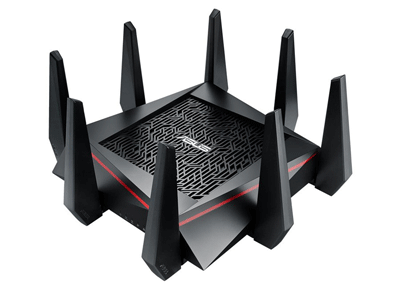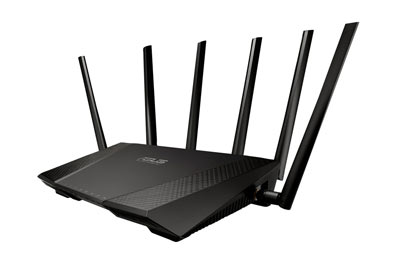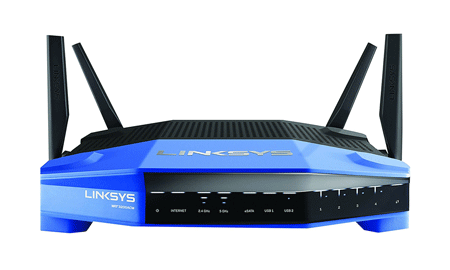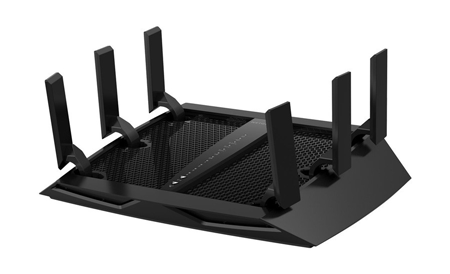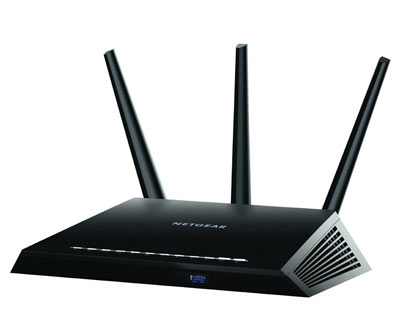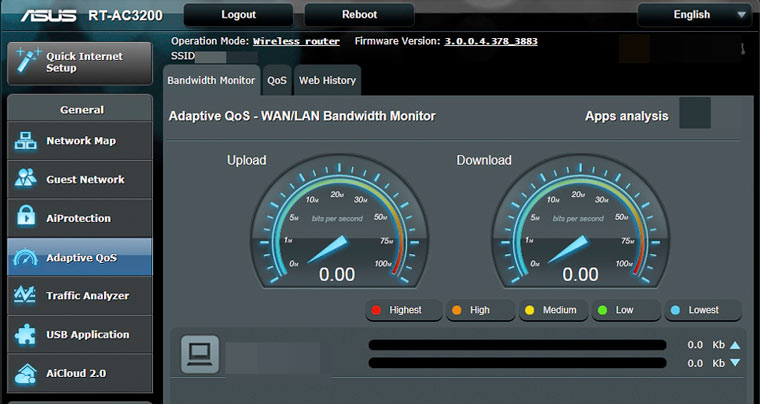We all own medium to large homes these days and average router at this times isn’t strong enough to provide us the kind of connection we seek and hence here we bring forth this list of routers, helping you chose the best VPN router for home.
Note that these routers are also perfectly capable of delivering service of utmost satisfaction even at your offices or industries, but it’s just that when it comes to homes these top the charts.
Best VPN Router for Home
 Asus RT-AC5300 Asus RT-AC5300 | 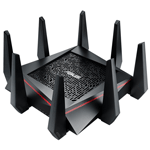 | Great For Large Homes Perfect For 10+ Devices Works With All ISPs & VPNs Compatible Worldwide Plug n Play Setup | |
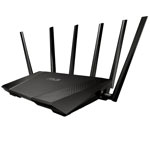 | Great For Medium To Large Homes Perfect For 10+ Devices Works With All ISPs & VPNs Compatible Worldwide Plug n Play Setup | ||
AC3200 | 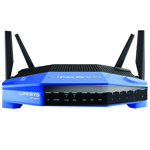 | Great For Large Homes NordVPN Client DD-WRT Router Perfect For 10+ Devices Works With All ISPs VPNs Compatible Worldwide Plug n Play Setup Available |
These are the best VPN router for home pertaining to the fact that the infrastructure of a home and an office differ greatly, especially in number of walls and obstacles, which greatly affect the routers’ performance.
It’s not quite easy, or practical to brand anyone specific router the best VPN router for home, so we will just list out the best of them here, and then you can make your pick according to your requirements and budget.
1. Asus RT-AC5300
There won’t be much resistance even if we claim this to be the best VPN router for home outright. We won’t do so just as a courtesy to the other routers, but let me tell you it really does deserve that title.
Especially as you’re hunting for the best VPN router for home, and home-usage is dominated by gaming and/or video-streaming, if that’s your case, this beast is custom-tailored just for you.
Specs:
- Recommended for: Very large homes.
- Link aggression supported.
- WiFi Bands X3: 1X 2.4, 2X 5GHz.
- 11ac tri-band.
- USB 2.0 and 3.0 ports.
- 4X4 External antennas.
- MU-MIMO technology.
- Security: WPA Enterprise, WPA2 Personal, WPA2, WEP, WPA2 Enterprise, WPA2 Personal Mixed, WPA Personal, Enterprise Mixed, RADIUS
- Processor: Dual Core, 1.4GHz
- Flash Memory: 128MB
- 4 External Ports: 1 WAN, 4LAN.
- RAM: 512 MB
- Exclusive built-in WTFast.
- Recommended for very large homes/ 10+ devices.
To begin with, it’s one of the very few routers in the market which boast a 4X4 antenna structure.
4 antennas are configured to receive, and 4 to transmit data, this is a structure which provides the Asus 5300 with exceptional speed and range.
It obviously supports 802.11ac standards, the latest when it comes to WiFi standards, and because of this it also supports some next-gen features such as Beamforming, 4K video streaming and lag-free online gaming.
Its 4X4 universal Beamforming makes sure that your WiFi signals aren’t sent out in general, but technically “walk towards” exactly where your devices are located, hence the speed and stability increase multiple folds.
Beamforming comes in especially handy at homes considering how there might be lots of walls or dead-spots and that’s what Beamforming helps tackle.
The 1.4Ghz processor and 512MB RAM too are among the top configurations in the industry and handle not only tasks but custom firmware extremely well as well.
MU-MIMO technology is another one of the strongest suits of the router, it’s a technology which lets you connect multiple devices to the router at once, without any of the devices suffering a lag in connection or speed, the router simultaneously connects
The security protocols are all updated and extremely secure, the LAN and WAN ports are what any other router offers. But, it exclusively offers link aggression. Quite a rare feature which lets you team up two LAN ports for never before wired speeds!
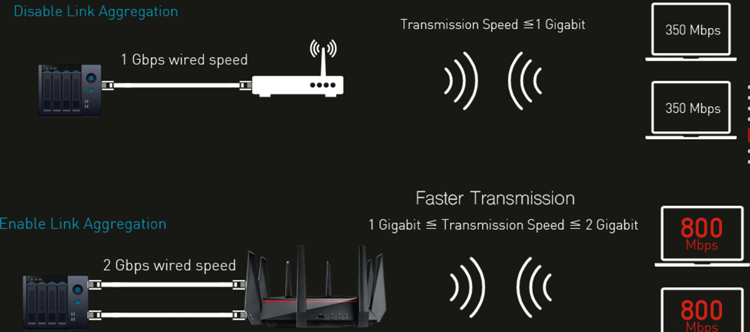
It’s armed with three WiFi bands, that’s 1X2.4Ghz, and dual 5Ghz bands, which add to a total throughput of 5300Mbps, which is the maximum throughput any router on this list offers.
Finally, I’ll say that if you have a rather large home, and wish to connect over 10 devices to your router, if your primary requirements are gaming and 4K video-streaming, it’ll be hard, if not impossible to find a router which exceeds the performance of the Asus 5300.
It can be configured with any VPN but is only available with DD-WRT for now. (Which isn’t particularly a bad thing).
2. Asus RT AC-3200
After the Asus 5300, if there’s a router which deserves to be labeled as the best VPN router for home, it’s the Asus AC-3200.
It’s not as efficient as the AC-5300, but it mirrors many of its features and hardware capabilities, and when it comes to performance, especially at homes, this is without doubt the best second choice.
Specs:
- Recommended for: Very large homes.
- Triband WiFi: 2.4/ Dual 5Ghz.
- 11ac technology (Universal Beamforming available).
- USB Ports: 2 ( 1X 2.0 / 1X 3.0)
- RAM: 256MB
- MIMO Technology
- TurboQAM technology.
- Flash Memory: 128MB
- 5 Ports: 1 WAN, 4LAN.
- 6 (3X3) Dual-Band External antennas.
- Security: WPA-Enterprise , WPS support, 128-bit WEP, WPA-PSK, WPA2-PSK, WPA2-Enterprise , 64-bit WEP, Radius with 802.1x.
- Processor: 1 GHz
The Asus AC-3200 offers simultaneous tri-band frequencies like the Asus 5300, meaning all the three frequencies can be used at the same time. (Although the whole tri-band thing is more of a gimmick and shouldn’t really influence your core-decision, you can read our detailed Asus 3200 flash router review for better understanding.).
Its 1X2.4 Ghz band gets us a throughput of 600Mbps, while the dual 5Ghz add up to 1300Mbps + 1300Mbps, adding up to a total of 3200Mbps of throughput.
In my personal experience, I tried it at my home at a distance of 8ft. from the router with a wall in between and I got 127Mbps on the 5Ghz band, although it’s just a single instance provided here just to get you an idea and not to assert anything.
The Asus 3200 too boasts the MU-MIMO technology facilitating multiple devices to be connected and utilized to their maximum speed potential with ease.
Then there’s the TurboQAM technology available as well, it increases the spatial streams on the router to provide us with 200Mbps rather than 150, which adds up to the overall speed of the router and isn’t something that many others offer.
It slightly lacks in antennas as compared to the Asus 5300 and offers 3X3 antenna infrastructure, which still is something much better and much more advanced than most other routers offer.
Beamforming support goes almost without saying, along with 802.11ac standards. The processor and RAM are the same as the Asus 5300.
So in short, as a best VPN router for home, it seems a logical choice when you need the powers of the Asus 5300 but is short on budget.
3. Linksys WRT3200ACM AC3200
The Linksys AC-3200 is a direct competitor to the Asus RT AC-3200, or even the Asus 5300, be it the price-range, or features it’ll make your decision on a best VPN router for home rather difficult.
Specs:
- Recommended for: very large homes/ Supports 64 clients!
- Tri-stream support. (fastest 5Ghz band).
- 8Ghz dual-core processor (the best yet).
- MU-MIMO supported.
- Simultaneous dual-band- 2.4Ghz and 5Ghz.
- USB 3.0 and 2.0 (Esata ports).
- Beamforming
- 512 MB RAM/ 256 MB flash.
- 4 External antennas.
- Encryption protocols: WPA2 Personal, WPA2 Enterprise, WPA/WPA2.
The best feature that the Linksys AC3200 offers, and is a prime reason why it’s considered one of the best VPN router for home is its Tri-stream feature.
Tri-stream makes its 5Ghz band the fastest band in the industry currently with 2600Mbps of speed, as a result of its DFS technology allowing it to triple the channels at 80Mhz.
In other words, it boosts speed considerably and outperforms nearly all of its competition especially dealing with heavy gaming, or video-streaming.
Apart from that, MU-MIMO is supported allowing all the devices to utilize and function on their full speeds without having to queue up for the router transmissions.
The hardware slightly beats the Asus 5300 with 1.8Ghz Dual-core processors, and 256 MB of flash memory, although the RAM remains identical. So, if you transfer a lot of files and local connections are a priority to you, it might be a better choice as your best VPN router for home.
Even with Tri-stream the only reason it’s listed at #3 here is because of our personal experience of the Asus 5300 being slightly faster when it comes to throughput compared to the Linksys AC-3200.
It supports 4 external antennas, which further boost its speed and range, and that coupled with its support for Beamforming bring unmatched router experience, even for mansion-like homes.
So, this is the only router which I’d say comes close to rivaling the Asus 5300 when compared as the best VPN router for home, so feel free to go with either of them.
4. Netgear Nighthawk X6 R8000 AC3200
The Netgear Nighthawk is the best VPN router for home as long as you own a medium to a large home and wish to connect 10-15 devices. I put this router on the fourth position according to offers features and performance.
Specs:
- Tri-Band (4Ghz / Dual 5GHz)
- Smart connect.
- 6 external antennas.
- Beamforming+
- 1Ghz dual core processors.
- 2X USB Ports: 1X2.0 / 1X3.0
- RAM: 256MB
- Flash memory: 128 MB
The Netgear AC3200 offers tri-band frequencies, just like the Asus 5300, its 2.4Ghz band offers 600Mbps, while the dual 5Ghz bands offer 1300Mbps each, which adds it all up to 3200 Mbps.
It also has as many as 6 external antennas for better speed and range, my personal experience with the router was that I was able to garner a speed of around 87Mbps on wireless, with 6 other devices connected which is practically the same speed that I get on Ethernet so I’m more than happy.
It supports the Beamforming+ feature as well, the advanced version Beamforming increasing speed and range based on relative location of devices.
Its Smart Connect is another one of the features which you’d surely wish to own with a router that’s been labeled the best VPN router for home, it automatically assigns your devices to a suitable frequency based on a number of factors.
What this means is, all the devices are always on the most optimum frequency and hence perform their best.
The processor with 1Ghz of power, the RAM and flash memory being 256MB and 128MB respectively leave no stone unturned, and as a user there isn’t a deal-breaking difference you’d have to experience just because they’re slightly lower.
The dual USB ports, 2.0 and 3.0 respectively make connecting any external device or transferring/sharing files and media easy as well.
The only feature it lacks is the MU-MIMO technology apart from that, it’s all gold.
5. Netgear Nighthawk R7000 AC1900
While digging for the best VPN router for home, this is the third treasure chest that the industry can throw your way.
It’s cheaper as compared to the other routers we just discussed, while doesn’t differ a lot when comes to its specs
Specs:
- Beamforming +
- 3 Antennas (type- External).
- Security: WPA-PSK [TKIP] WPA2-PSK, WPA2-PSK [AES] WPA/WPA2 Enterprise, [AES] WPA-PSK [TKIP}.
- 1Ghz Dual-core processor.
- Two Wireless frequency bands: 2.4/ 5Ghz
- 2 USB Ports: 2.0 & 3.0
- RAM: 256MB
- Flash Memory: 128MB
- TurboQAM
What matters most when it comes to routers? I’d say speed & range. Well to provide the best of those, the Nighthawk is armed with 3 external antennas and dual-band frequencies.
The throughput on the 2.4Ghz is 450Mbps, while that on the 5Ghz band goes as far as 1450Mbps, totaling it up at 1900Mbps.
The processor doesn’t lack performance either and packs a punch of 1000 Mhz (or 1Ghz). In fact, when it comes to Tomato custom firmware, the Flash router team regards it as the best VPN router for home on their official page boldly.
The RAM is 256MB, enough to let you complete tasks such as file-sharing and remote access with ease, and the two USB ports offering both 2.0 and 3.0 capabilities eliminate all complain as well.
The one aspect where it exceeds the ASUS routers is its Beamforming+ capability, it’s basically an advanced version of Beamforming, better and stronger, more of which you can read on our detailed Netgear Nighthawk 7000 Tomato Review.
It too supports TurboQAM hence increasing the power of the spatial streams, although MU-MIMO seems to be missing.
So, apart from the support for MU-MIMO, the features are nearly the same, but this one’s extremely pocket-friendly (as compared to the other routers discussed above).
FAQ
Here we’ve compiled and answered some of the most frequently asked questions when it comes to the best routers for your convenience:
Is buying these flashed routers legal?
After a misinterpreted FCC statement, this is probably the most important question you’re asking right now. Well, it’s illegal to flash these routers beyond legal compliance, increasing the signal strength per se. However, simply flashing a router with third-party firmware isn’t illegal.
In other words, buying these pre-flashed routers from Flashrouters is completely legal. Flashing routers yourselves is legal as well. But, it’s safer (technically) to just buy a pre-flashed router.
Does MU-MIMO really matter for home routers?
From a practical and real-world POV, not much, yet it still does to some extent. Primarily because, MU-MIMO only works for “downlinks”. And in any household, the size of download (or streaming) of media is known to us all.
However, MU-MIMO will only work if your device too is MU-MIMO compatible. In other words, your device has to be able to use 802.11ac standards, and 5GHz frequency.
Note that not even all 802.11ac devices support the TxBF mechanism required for MU-MIMO. Only the more recent ones do.
What is Link Aggression?
Not everyone searching for the best router for home may know what Link Aggression is.
Well, in the simplest of terms, Link Aggression is the ability to connect two Ethernet cables to your router, to pass traffic faster than simply connecting 1 Ethernet cable.
This also helps load the balance between two physical devices.
More importantly, it provides for a plan B, or failsafe. In case one of the cables goes down, the second cable keeps the connection going.
The network pool too isn’t stressed much, you can use one IP address for all the traffic.
But if you need it for your home- “better performance“, just let it be there (it’s a complex concept otherwise).
My home has children, which is the best router for home for me?
Pick any one of the ones listed above.
We kept in mind the child-safety issues while compiling this piece.
Every single one of the home routers listed above offer advanced parental controls.
So you can set the websites which can be accessed, time, schedulers, and a lot more.
Will beamforming work on my older devices?
If you’ve got older devices, I’d urge you to take the Asus RT-3200 for a test-drive. Or, any other best router for home which supports universal beamforming. Note that routers which only support explicit beamforming can’t be used to connect to older devices.
Final Words:
The routers included here as the best VPN router for home have been reviewed from a “home” perspective.
Meaning the primary uses, the infrastructure, the budget and everything else.
Talking of the uses, a home router is generally used for very different purposes than an office router. An office router for starters if often shared by higher number of people as compared to people in a home.
Then, a home router is primarily used for “Downlinks”, as in downloading of data such as streaming a video, while office routers are mostly used for uploading of files, or video-conferences.
The infrastructure in a home generally encounters a lot more obstacles in the form of walls and furniture, while in an office there’s generally more open-space. But then again, home routers do not need the amount of security that a router in an office generally should be equipped with.
Last but not the least, “budget” isn’t a massive issue when choosing a router for an office because there’s funding, and it’s often considered an “investment”. Home routers however are those which may be slightly less feature-rich but way cheaper than office routers.
You totally can glance at our piece on the best routers for Office if that’s what you’re looking for as well.
Although they differ in features and price, picking any one of them up would solve your problems.
We’ve simply provided enough variety and choice for you so you can select the best VPN router for home based on your needs, priorities and budget.
Do let me know which router you think deserves to be crowned as the best VPN router for home, it helps understand us your perspectives better.

